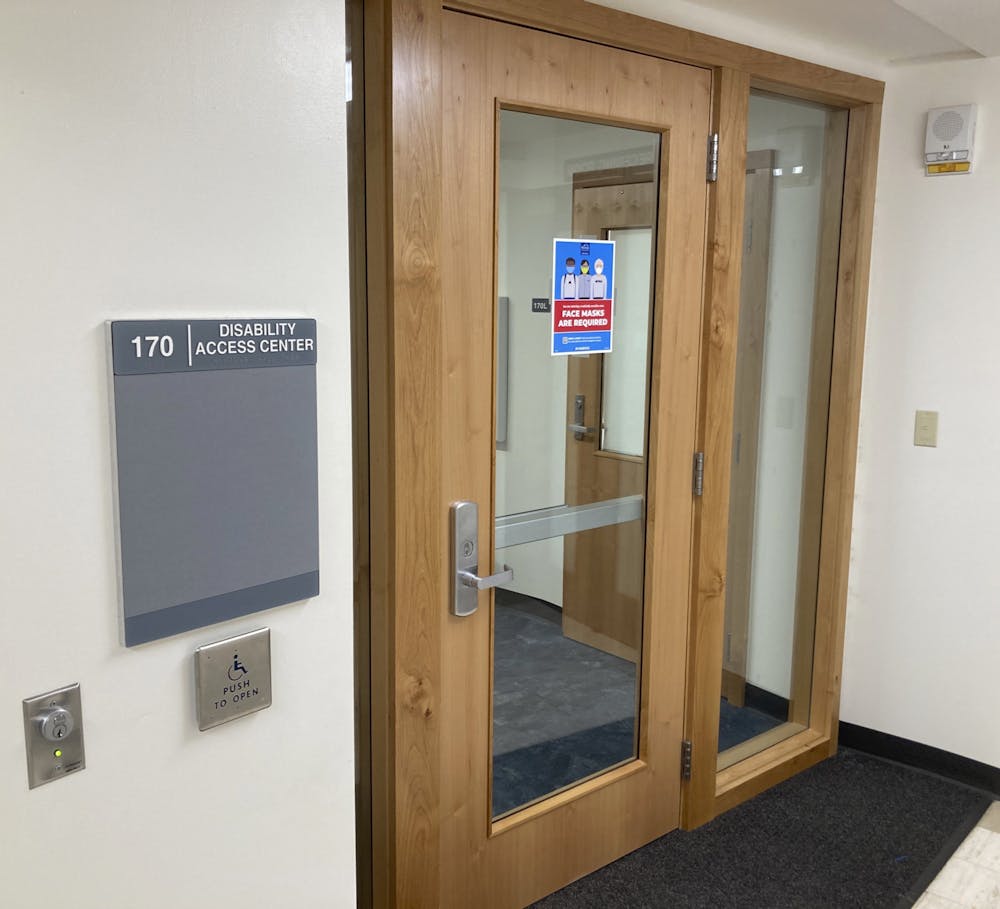Western Washington University’s Disability Access Center (DAC) recently held two neurodiversity workshops for students, student employees, tutors, peer mentors, teaching assistants, graduate assistants, advisors and faculty.
The workshops were hosted by Kathryn Holley, a behavior and education consultant at the Autism Center at the University of Washington. Holley shared several practices that students and staff can follow in order to create a more inclusive space for neurodivergent students on Western’s campus.
“Neurodiversity as a term signifies a broad range of people who experience and interact with the world in a myriad of ways,” said Charlie Flewelling, access manager at Western’s DAC. “Our recent training on neurodiversity centered [on] people with Autism Spectrum Disorder (ASD), but neurodiversity includes, and is not limited to, people with various attention or learning disabilities as well as people with mental health disabilities regardless of if they have had access to formal diagnostics.”
Holley said there are a few important things to consider when supporting neurodivergent students in an academic environment, like keeping students excited about learning, reducing anxiety and not overwhelming students with too much information.
Holley said it’s important to work with neurodivergent students to create a positive environment.
“When we think about talking with individual students, what can we do in terms of helping to co-create this environment that is going to be more accommodating or successful? Asking both what that person wants you to do, but also giving equal importance to what they don’t want you to do,” she said during one of the workshops.
A person who is neurodivergent tends to process information in different ways, Holley said, so considering the environment and the form of communication is key. She said being direct and to the point in a supportive way is often helpful.
“DAC staff engage in ongoing education, training and conferences specific to disability,” Flewelling said. “We strive to be welcoming to everyone in our spaces.”
When it comes to being inclusive at Western, Flewelling said the DAC staff works to familiarize themselves with neurodiversity practices.
"As a university community, we benefit from having diverse stakeholders including students, faculty and staff. Growing our understanding and cultural competencies increase access and inclusive achievement for all communities especially students with marginalized identities," Flewelling said.
Flewelling said the DAC also tries to help students in many different ways, as they know each individual is different.
“Understanding that many people have differing sensory, communication, physical, emotional and executive needs, our practice is grounded in humility and assuming the best intentions,” they said. “We do not focus on differences between people, rather we focus on individuals including their strengths and understanding their needs.”
Melissa Anderson, access and disability specialist at Whatcom Community College, said Whatcom is also working to spread awareness to students and faculty when it comes to creating an inclusive environment.
“We meet with students individually to hear their stories and how their specific disability affects them before determining what might be some appropriate accommodations,” Anderson said. “Last year we had a neurodiversity club run by students which was very active on campus. We are hoping they will continue this year.”
Similar to Western’s DAC, Anderson said Whatcom Community College takes account of each individual student instead of having groups to have discussions in.
To learn more, students can take courses in the Disability Studies Program. They can also schedule an appointment with a DAC access manager on their website for further details on what Western is doing to accommodate neurodiverse students.
Kota Sato (he/him) is a sports and recreation reporter for the Front and third-year student at WWU. Majoring in news/editorial journalism, he enjoys writing most on topics that revolve around American football or basketball.






